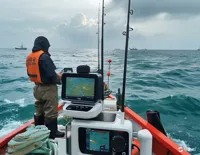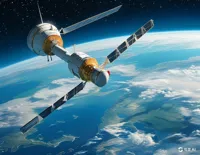







In the grand journey of human exploration of the universe, China's Beidou Navigation System shines like a rising star, illuminating a new epoch of global satellite navigation. Since its inception in 1994, Beidou has undergone a leapfrog development from non-existence to global coverage, becoming a glorious milestone in the history of Chinese space endeavors.
The construction of the Beidou system has followed a "three-step" development strategy. The first step, by the end of 2000, saw the completion of the Beidou-1 system, serving China; the second step, by the end of 2012, marked the completion of the Beidou-2 system, serving the Asia-Pacific region; and the third step, by 2020, signified the completion of the Beidou-3 system, serving the whole world. This strategic implementation not only reflects the foresight of Chinese space professionals but also demonstrates the rapid development of China's scientific and technological strength.
The completion of the Beidou-3 system signifies that Beidou's services now span the globe, providing all-weather, all-time, and high-precision positioning, navigation, and timing services. The spatial segment of the Beidou system consists of various orbit satellites, including Geostationary Earth Orbit (GEO) satellites, Inclined Geosynchronous Satellite Orbit (IGSO) satellites, and Medium Earth Orbit (MEO) satellites. This hybrid constellation design gives Beidou a significant advantage in anti-occlusion capabilities, especially in low-latitude regions.
The global service of the Beidou system has not only enhanced China's discourse power in the global navigation field but also provided more choices and possibilities for users worldwide. With its high precision and reliability, the Beidou system has gained widespread international recognition. In terms of international cooperation, Beidou adheres to the principles of openness and compatibility, engaging in extensive compatibility and interoperability with other systems such as the US GPS, Russia's GLONASS, and the EU's Galileo, jointly providing higher performance, more reliable, and richer services for users globally.
The Beidou system has a wide range of applications, from transportation, maritime fisheries, meteorological forecasting to public safety, and smart city construction, where it plays a crucial role. In transportation, Beidou provides vehicles with accurate positioning and navigation services, enhancing transport efficiency and safety. In maritime fisheries, it offers real-time positioning and emergency communication services for fishing vessels, ensuring the safety of fishermen. In public safety, it provides strong technical support for disaster warning and emergency rescue.
The development of the Beidou system is not only a significant achievement in China's space endeavors but also an important contribution of China to the development of global science and technology, economy, and society. The evolution of Beidou reflects the spirit of independent innovation and the courage to explore among Chinese space professionals. Looking forward, Beidou will continue to enhance its service performance, expand its application fields, and provide higher quality and more convenient services for users worldwide, becoming a brilliant star in the global satellite navigation system.